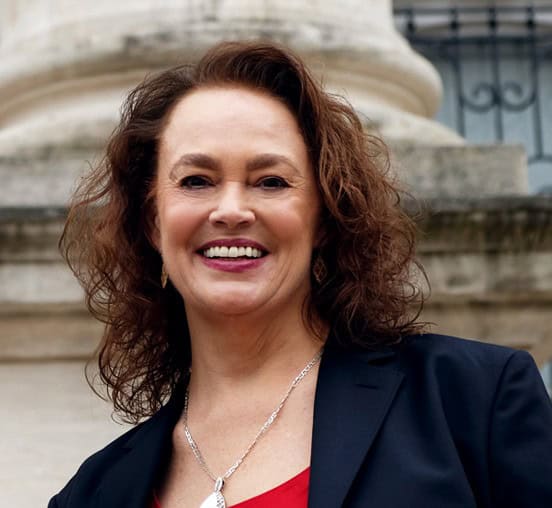If you have been hurt in a car accident, you may feel shaky and disoriented. However, by taking the right steps immediately after the crash, you will avoid costly mistakes and be in a better position to build a strong legal case. Whenever possible, you and your Bowling Green car accident lawyer should take time to gather evidence. This includes speaking with possible witnesses at the scene. When doing this, be sure to ask the right questions. This will enable you to obtain and record relevant and accurate information.
Below are some important questions to ask a car accident witness.
What’s In This Post:
- Can you describe in detail what you saw?
- Where were you located in relation to the accident when it happened?
- Did you see any other witnesses who might have more information?
- What exactly did you see or hear?
- What were the weather and road conditions?
- Did you hear anything the other driver said after the accident?
- Did you witness the entire accident or just part of it?
- What did you do immediately after the accident?
- Would you be willing to make a statement to the police?
- Can I get your contact information?
1. CAN YOU DESCRIBE IN DETAIL WHAT YOU SAW?
When taking a statement from a witness, it is important to find out what exactly they saw. Some witnesses see the actual crash taking place while others arrive at the scene after the wreck. However, a witness who was not present during the collision may still provide important information that will help your case.
Ensure the witness is certain that they are providing an accurate account of the accident. This includes details about the crash itself as well as the aftermath of the accident. Inconsistent or contradicting stories may cause doubt and jeopardize your case.
2. WHERE WERE YOU LOCATED IN RELATION TO THE ACCIDENT WHEN IT HAPPENED?
When it comes to witness statements, proximity to the scene of an accident matters a lot. Find out where they were prior to and during the collision. Witnesses who were closer to the accident are likely to have had a clearer view. This puts them in a better position to accurately describe the events leading up to and after the crash.
To gather all the relevant facts, talk to multiple witnesses who were at different locations. This will not only enable you to reconstruct the scene of the accident but also make for more solid evidence.
3. DID YOU SEE ANY OTHER WITNESSES WHO MIGHT HAVE MORE INFORMATION?
There are times when a witness will not have sufficient knowledge about an accident. Also, the witness may not be available to testify at trial at a later date if the need arises. However, they could be in a position to provide you with leads to other eyewitnesses.
Asking this question will enable you to identify other potential witnesses. Interviewing as many witnesses as possible will provide a more accurate account of what exactly happened, effectively helping you build a strong case.
4. WHAT EXACTLY DID YOU SEE OR HEAR?
To ensure the witness’ testimony comes across as credible, get as many details as possible. Once the witness has told their story, consider asking some follow-up questions to get them to provide more details regarding what they saw and heard.
Some important details you need to nail down include:
- The general position of the vehicles before the accident
- Whether one driver was speeding or texting
- If there were any traffic infractions
- Whether anyone was driving aggressively
- If the witness saw or heard the other driver trying to brake suddenly and
- Whether they observed the other driver right after the accident
5. WHAT WERE THE WEATHER AND ROAD CONDITIONS?
Many different factors can contribute to a car accident. When gathering information after a crash, remember to ask about the weather and road conditions when the collision occurred.
In addition, ask the witness if they think the weather contributed to the accident. For instance, fog may have hindered visibility, the sun may have caused a glare or snow may have made the road surface slippery. This information will give the parties involved and the court a better understanding of the accident site.
6. DID YOU HEAR ANYTHING THE OTHER DRIVER SAID AFTER THE ACCIDENT?
 Small details can make a big difference in your car accident lawsuit. When interviewing a witness, find out whether they heard the other driver saying anything after the wreck. In the moments immediately after an accident, drivers can share valuable information that could help your case.
Small details can make a big difference in your car accident lawsuit. When interviewing a witness, find out whether they heard the other driver saying anything after the wreck. In the moments immediately after an accident, drivers can share valuable information that could help your case.
Seek to find out if the witness heard the driver apologizing for careless driving, admitting fault or apportioning blame. The witness can also tell whether the other driver appeared to be intoxicated, was enraged or threatened others at the scene.
7. DID YOU WITNESS THE ENTIRE ACCIDENT OR JUST PART OF IT?
It is important to understand and record the sequence of events that led to the crash. This can go a long way in helping to identify the root cause of the accident. As such, find out the context of the witness’ observations.
Once the witness has given their version of events, seek to know if they saw the entire or just part of the accident. This will enable you to get only firsthand observations of what happened. For instance, someone who was driving behind you is likely to have had a front-row view of the events.
8. WHAT DID YOU DO IMMEDIATELY AFTER THE ACCIDENT?
Even if a witness was not present at the scene during the collision, they may still provide useful information. Asking how they reacted will help to show that they recall many details about the accident. This way, their testimony is likely to be perceived as credible.
The information that a car accident witness provides may also prove useful when reconstructing what happened following the crash. The witness may have taken photos of the other vehicle, assisted victims at the scene or called first responders. This information will demonstrate that they considered the accident to be serious.
9. WOULD YOU BE WILLING TO MAKE A STATEMENT TO THE POLICE?
A car accident witness statement will be more valuable if it is on record with the police. Request the witness to wait for the police to arrive and make a statement with them.
The police will know what questions to ask to ensure all the important details are captured. Also, the statement will come in handy in the event that the witness is unavailable at a future date. Lastly, your lawyer can use the statement during negotiations or trial further down the road.
10. CAN I GET YOUR CONTACT INFORMATION?
Having witnesses’ accurate contact information will make it easy to get in touch with them later in case the need arises. You may want to ask follow-up questions in the future, or a witness may later remember something important.
The more information you have about witnesses, the better. Do not forget to write down the witnesses’:
- Names
- Phone numbers
- Addresses
Have you or your loved one been injured in a car accident? Flora Templeton Stuart Accident Injury Lawyers can help you get the compensation you deserve. Contact us today for a free case evaluation.

